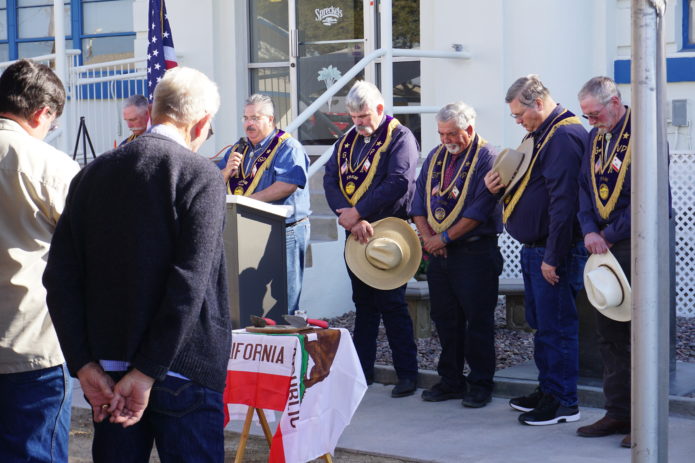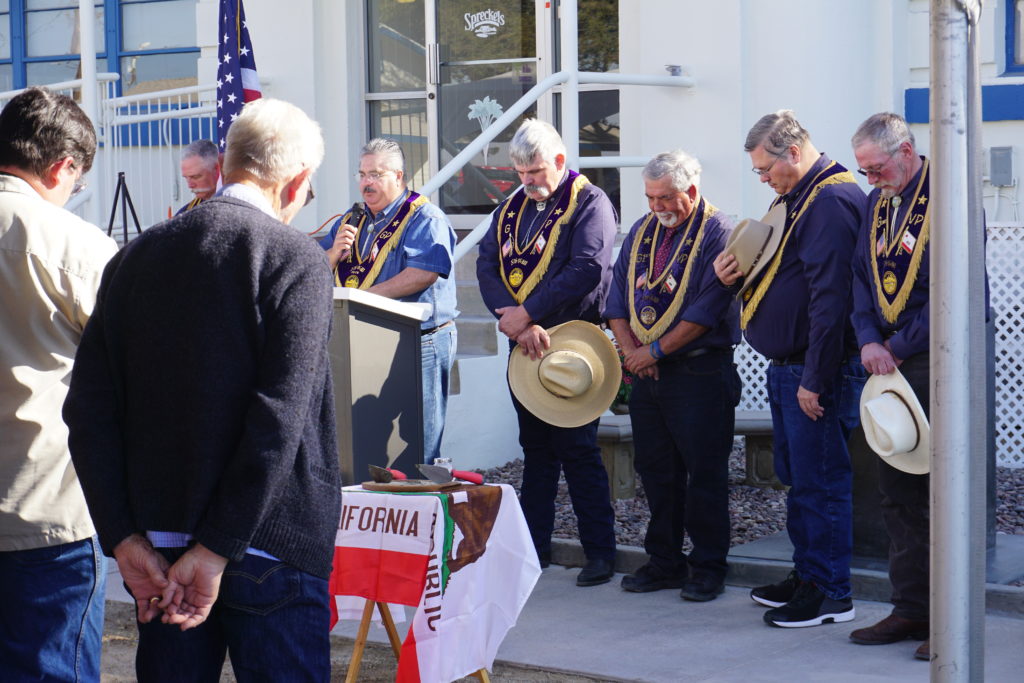
In the geographic center of the Imperial Valley, strategically located to meet the needs of growers in both the northern and southern ends of the Valley, stands California’s last operating sugar plant—a monument to the past, a symbol for the present and a harbinger of the future.
The Spreckles Sugar plant, perhaps better known to longtime residetns as Holly Sugar, towers over the Highway 86 corridor between El Centro and Brawley just as it has since it was first built in 1947 to serve the needs and more importantly capitalize on the Valley’s sugar beet industry.
On a sunny winter Saturday afternoon (February 8), Spreckles Sugar was honored for its historical significance to the Imperial Valley by the local parlor (De Anza Parlor) of the Natives Sons of the Golden West, which dedicated the plant with a plaque commemorating the facility’s history and celebrating its future.
“There used to be over 15 facilities in California,” said local farmer Craig Elmore, a member of the Native Sons, an organization with chapters throughout California dedicated to celebrating and sharing information about California’s unique history. “This is the last remaining plant in California, and it is super vital to the Imperial Valley.”
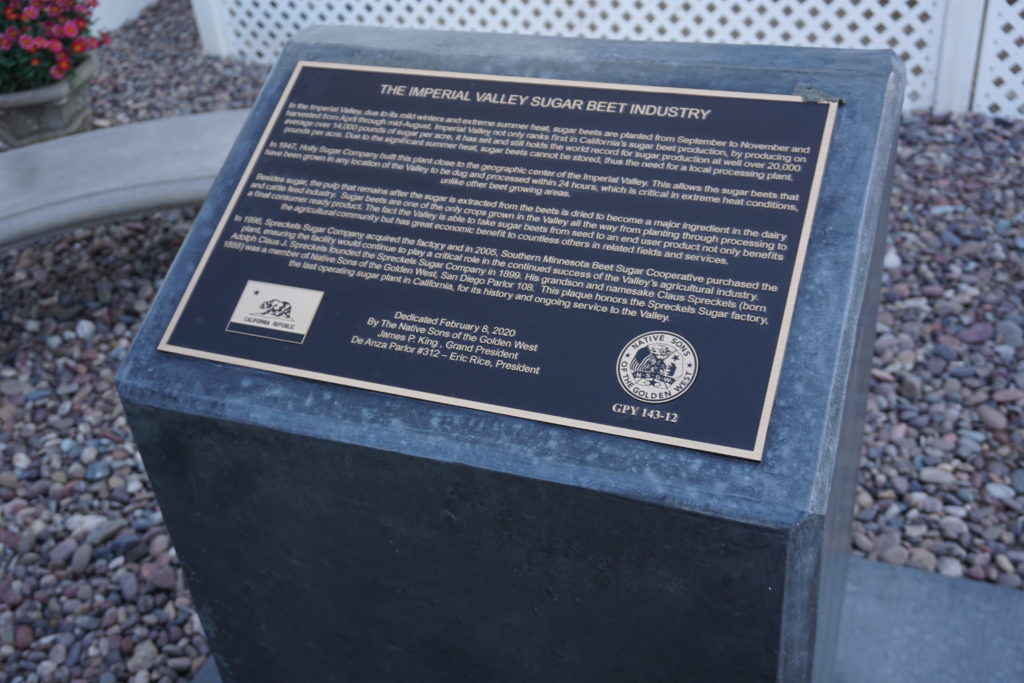
The plaque, dedicated on the grounds of Spreckles Sugar reads:
In the Imperial Valley, due to its mild winters and extreme summer heat, sugar beets are planted from September to November and harvested from April through mid-August. Imperial Valley not only ranks first in California’s sugar beet production, by producing on average over 14,000 pounds of sugar per acre, it has set and still holds the world record for sugar production at well over 20,000 pounds per acre. Due to the significant summer heat, sugar beets cannot be stored, thus the need for a local processing plant.
In 1947, Holly Sugar Company built this plant close to the geographic center of the Imperial Valley. This allows the sugar beets that have been grown in any location of the valley to be dug and processed within 24 hours, which is critical in extreme heat conditions, unlike other beet growing areas.
Besides sugar, the pulp that remains after the sugar is extracted from the beets is dried to become a major ingredient in the dairy and cattle feed industry. Sugar beets are one of the only crops grown in the valley all the way from planting through processing to a final consumer ready product. The fact the valley is able to take sugar beets from seed to an end user product not only benefits the ag community but has great economic benefit to countless others in related fields and services.
In 1996, Spreckels Sugar Company acquired the factory and in 2005, Southern Minnesota Beet Sugar Cooperative purchased the plant, ensuring the facility would continue to play a critical role in the continued success of the valley’s agricultural industry.
Adolph Claus J. Spreckels founded the Spreckels Sugar Company in 1899. His grandson and namesake Claus Spreckels (born 1888) was a member of Native Sons of the Golden West, San Diego Parlor 108. This plaque honors the Spreckels Sugar factory, the last operating sugar plant in California, for its history and ongoing service to the valley.
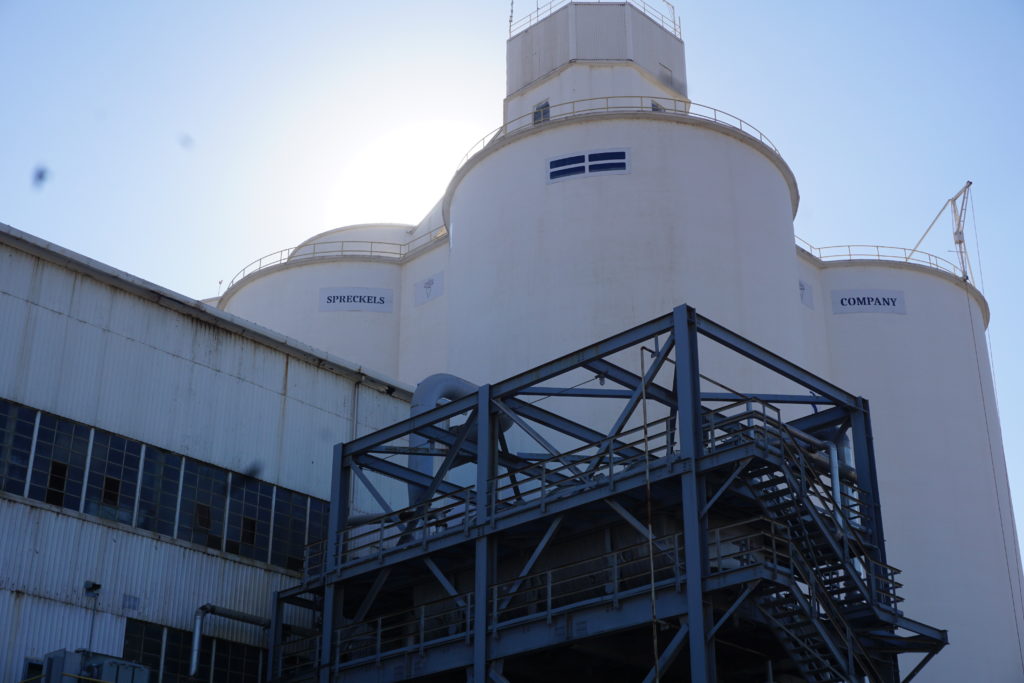
During the dedication ceremony, attended by dignitaries from throughout the Valley along with farmers and local business leaders, Shelby Drye, agricultural manager of the Spreckles Sugar plant, shared the history of the company.
As stated on the plaque, Spreckles was founded by Claus Spreckles in February of 1899, and it wasn’t long to the company became a leader in the sugar industry west of the Mississippi. The first plant built in California, built just north of the Salinas River, became the largest sugar refinery in the U.S.
In the years that followed, the company recognized the need for a plant in the Imperial Valley, given the surging sugar beet industry in the area. The local plant was built in 1947, and as noted earlier, is the last plant still in operation in California. The plant eventually was sold to the Imperial Holly Corp. of Sugar Land Texas, but relinquished it to Southern Minnesota Beet Sugar Cooperative, based in Renville, Minn., in 2005. At that time, the plant’s Holly Sugar title, which it carried for years, was changed to Spreckles Sugar.
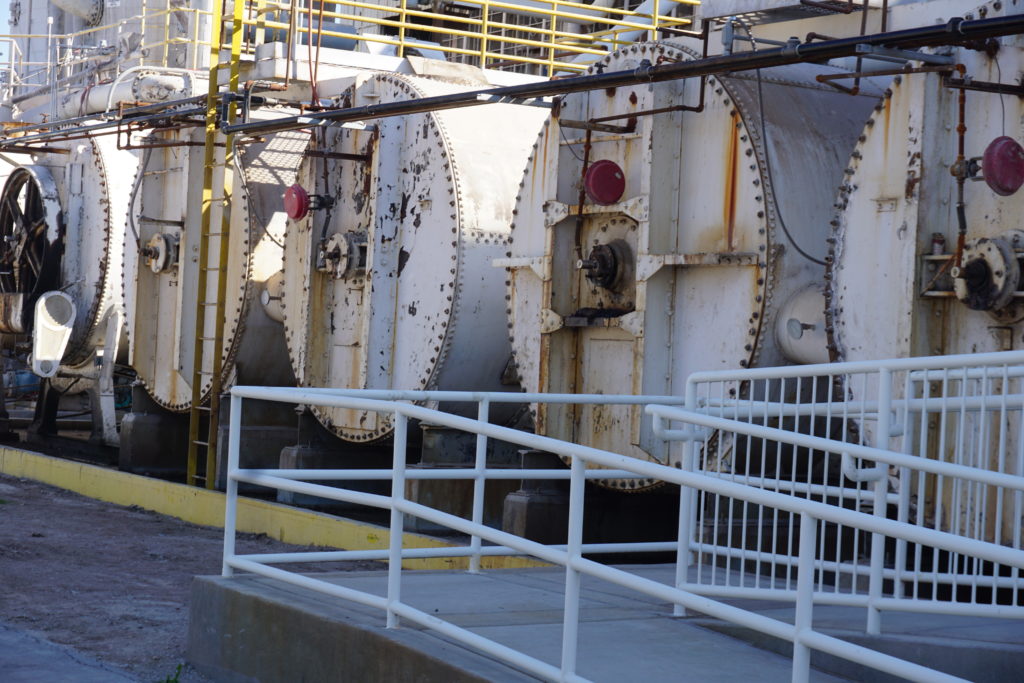
Drye said it was an honor to be recognized by the Native Sons.
“To be recognized, is really amazing,” he said. “We feel like we support a lot of families with the work we do here.”
He added of the relationship between Spreckles and the local growers. “Our growers are doing a great job growing and harvesting sugar beets, and delivering them to the factory.”
He also said, “As far as we know, the plant is here for good.”
The sugar beet industry in the Imperial Valley continues to thrive. Some 24,500 acres of sugar beets are planted in September of each year and harvested from April through July. The Valley holds the world record for sugar beet production at over 20,000 pounds in a given year. And the industry is continuing to grow.
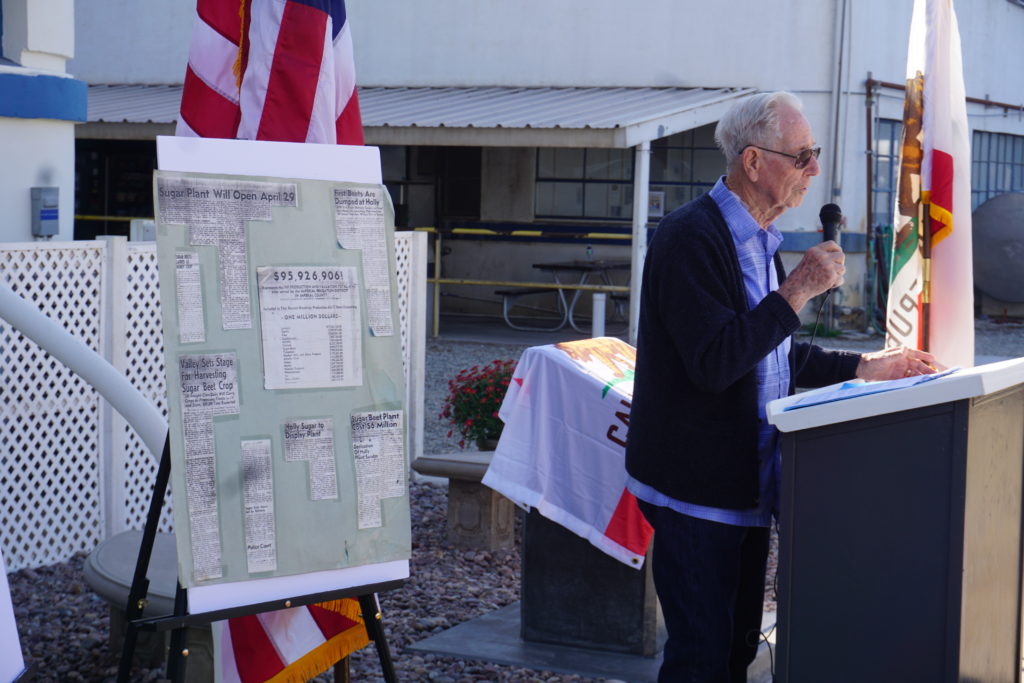
Representatives of the Native Sons of the Golden West said it is important to recognize historically important facilities and sites in the Imperial Valley.
“We’re trying to keep the history going,” said Paula Harris-Pangle, one of the leading members of the Natives Sons parlor in the Imperial Valley.
Eric Rice, president of the local parlor, added: “We are helping people understand the history of the Valley and helping people to appreciate that history.”
